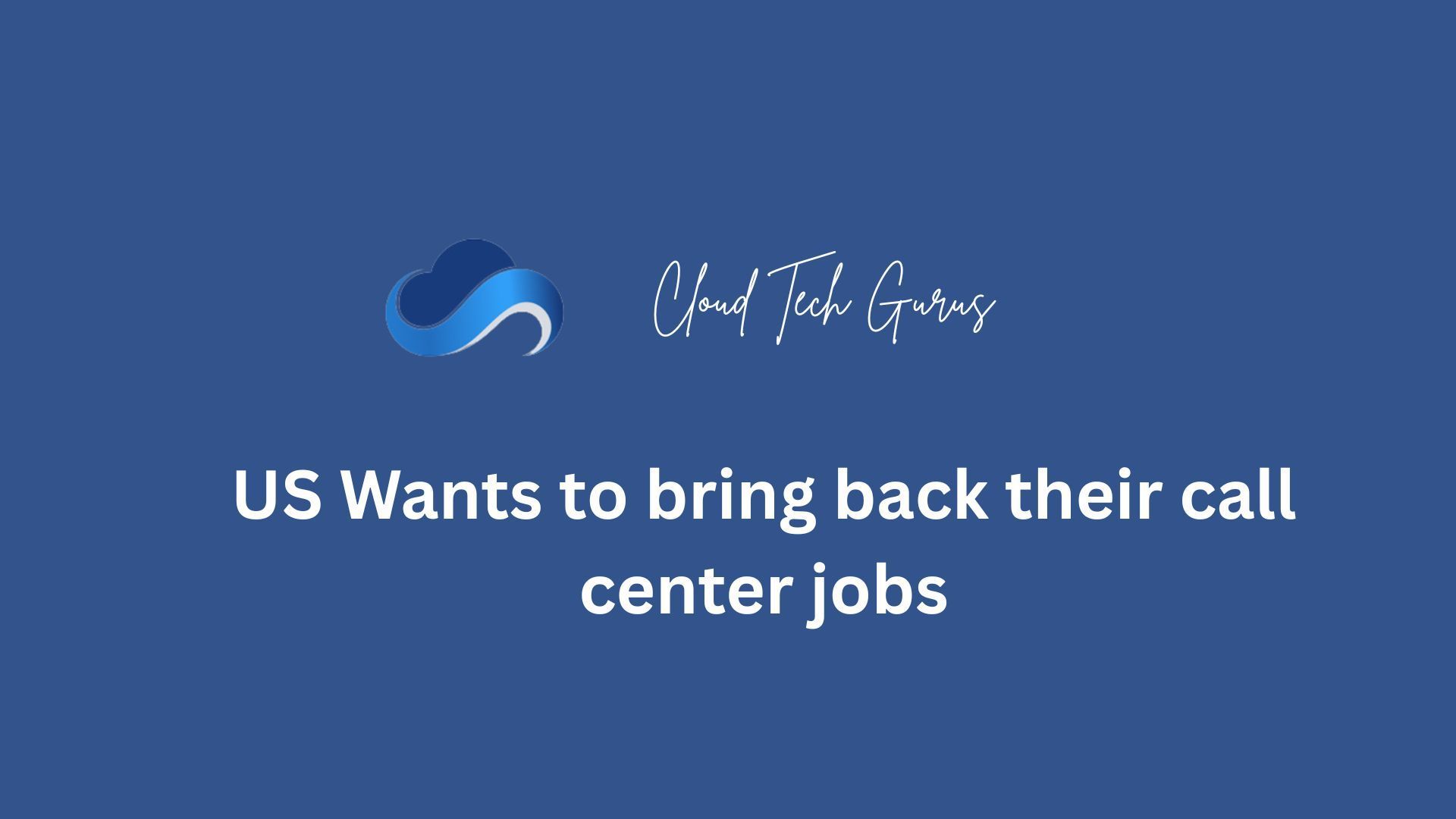The Keep Call Centers in America Act: What It Means for CX, Outsourcing, and AI in 2025

A new bipartisan bill is moving through Congress that could reshape the way companies approach customer service operations. The Keep Call Centers in America Act of 2025, introduced by Senators Ruben Gallego (D-AZ) and Jim Justice (R-WV), takes a hard look at offshoring, AI use in support channels, and how customer service jobs are distributed across borders.
If your business runs customer-facing operations, uses outsourced support, or incorporates AI into the customer journey, this bill isn’t just background noise. It could affect everything from your compliance responsibilities to your sourcing strategy.
What the Bill Covers
At its core, the legislation introduces strict requirements for businesses that either move customer service functions outside the U.S. or rely on AI in contact center environments.
Offshoring Rules and Penalties
- Any business with
50 or more full-time employees or 1,500+ labor hours per week must notify the
Department of Labor (DOL) at least 120 days in advance before relocating or outsourcing customer service operations overseas.
- Noncompliance results in a
$10,000
daily fine until the company takes corrective action.
- Companies that move support operations offshore will be placed on a public DOL registry for five years, unless they reverse the change or bring equivalent jobs back to the U.S.
Consequences of Being Listed
If a company appears on this registry, they may lose access to:
- Federal grants and federally backed loans
- New federal contracts, and even face monthly penalties on existing awards
- Preference in government contracting, which will now favor companies keeping work inside the U.S.
These rules apply even if outsourcing is done through a third party. The underlying location of work still matters.
AI and Agent Transparency
The bill also introduces clear disclosure requirements for both AI and agent location.
Every customer service interaction must begin with disclosure of:
- Whether the customer is speaking with a
human agent or AI
- The physical location of the agent or system managing the call or message
If the interaction is taking place outside the U.S., customers must be told that they have the right to transfer to a U.S.-based human agent. Companies are required to implement systems that make these transfers immediate and seamless.
In addition:
- Businesses must complete an annual certification to the Federal Trade Commission (FTC), verifying that they comply with AI and location disclosure requirements.
- The DOL will be tasked with producing regular
reports on AI-driven job losses and the status of call center employment tied to federal contracts.
Business Implications Beyond the Legal Language
The bill's potential impact on customer operations is significant.
Operational Costs and Compliance Burden
For companies using offshore support teams or automating early-stage customer interactions, the requirements could bring additional costs. This includes:
- Hiring or retaining a
U.S.-based workforce to manage transfer requests
- Updating contact center systems to support
real-time disclosure and agent escalation
- Navigating federal reporting, audit preparation, and ongoing compliance certification
The penalties for falling short, especially the risk of losing access to federal work or funding, may force businesses to rethink how they build and manage service teams.
Strain on Labor and Automation
Reshoring call center jobs may not be straightforward. U.S. unemployment in office and administrative support roles remains low, and labor shortages in customer service persist. Some companies may not find the talent they need domestically, even if they want to comply.
On the automation side, the requirement to disclose AI and provide a human fallback may slow adoption. While AI can handle routine inquiries efficiently, the need for always-available U.S. human agents could make automation less cost-effective for some organizations.
So Where Does That Leave the Industry?
CX leaders now find themselves balancing three pressures:
- Cost and efficiency goals
- Transparency and trust expectations
- Compliance with evolving government policies
Some may choose to double down on domestic operations to stay eligible for government contracts. Others may maintain a hybrid model with updated scripting, agent routing, and disclosure tools.
Whatever the strategy, success will hinge on preparedness, flexibility, and clarity.
How Cloud Tech Gurus Support Smarter Decision-Making
At Cloud Tech Gurus, we work with a wide portfolio of partners across the U.S. and global markets. That gives us visibility into how different organizations are adapting to these shifts.
Whether a company needs to assess their vendor risk, restructure escalation paths, or understand the implications of emerging AI rules, we help them ask the right questions and make practical decisions.
Our team doesn't just source solutions. We stay close to regulation updates and industry responses so that our clients can:
- Understand what new policies really mean in practice
- Evaluate the tools and partners that align with shifting requirements
- Design service models that prioritize customer satisfaction and operational clarity
The policy landscape may keep evolving, but clarity, adaptability, and informed choices remain the common thread.
Final Thought
Even if this bill doesn’t pass in its current form, the message is clear: transparency, local accountability, and human backup in CX are no longer just preferences. They're becoming policy priorities.
Companies that prepare now, while there's still time to adjust, will be better positioned for whatever comes next.
Innovate, Integrate, Inspire: Tech for Tomorrow's CX



















